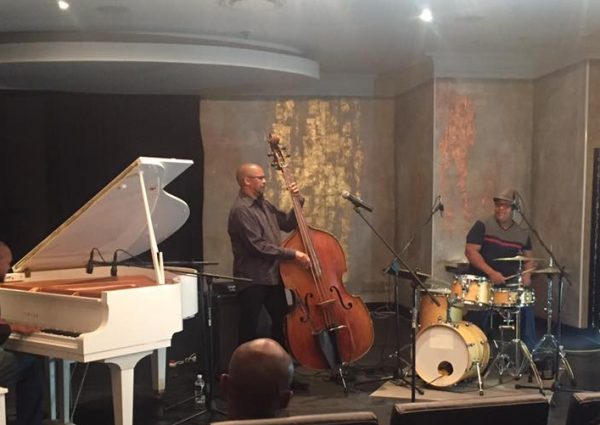To us as a publication aimed at documenting the city’s arts, it’s encouraging to see creators reviving the music space with fresh manna, writes Ace Moloi.
It would seem that in the past year, local gospel artists signed up for culinary lessons, because Jesus Christ, they have been cooking this year. If you sniff in the right directions, you might have picked up sweet perfume rising from this city to the heavens as artists burn their offerings in worship.
Hallelujah Bafana
Contemporary gospel artist, songwriter and composer, MJ Selepe, dropped his much-anticipated song, Dithoko Tsa Moya. The song started making a name for itself at the 2022 Free State Gospel Music Awards (Freesgosmas) and was seen as a frontrunner for the inaugural Free State Praise & Worship Vol. 1. However, Selepe withdrew from the project, opting to release the song independently.
Despite its good performance and extensive publicity, Dithoko Tsa Moya, which the composer punts as a “Christocentric meal”, was quickly overshadowed by his other composition – Pholoso – featured in a new project called Untamed Worship.
Untamed Worship is a contemporary visual worship product spearheaded by sound engineer, businessman and musician, Aluwakayode “Kay Swiss” Abimbola and accomplished jazz producer, Victor “Goodfingers” Kgantlape. The project roars with the voice of MJ Selepe, the chants of Prince Mohato, the penetrating vocals of Lebo Matumba and the consecrated penmanship of Sydney M.
In the first batch of visuals, Sydney M and MJ Selepe lead the two most popular songs on YouTube, Pholoso and Seikokotlelo. But it’s Pholoso that has had many tongues wagging. “Pholoso ya Jesu ke neo ya moya. Neo ya moya ke poloko e phethahetseng,” sings Selepe in a style influenced to a great extent by Afro-jazz. His catchy “Hallelujah Bafana” in reference to Untamed Worship’s flamboyant drummer, Bafana Sekgutleleng, is a lyrical sample of Tshepo Tshola’s Lehlapahlapa. This is indeed MJ Selepe’s best composition by far, revealing not just the uniqueness of his style but the style’s elasticity as well.
If you are a type of believer who can’t feel the presence of God when your church keyboardist is playing chords and not strings, stay away from this song. This one is for music enthusiasts who find God at jazz festivals just as they do during worship nights, unrestrained by denomination, culture, genre, preference and interpretation.
The jazzy engineering approach for the entire project, too, wants you to imagine yourself at a jazz club. One wishes, though, that the backing vocals could have been more warmer in the mix, notwithstanding the project’s distinguishable presentation in comparison with what’s currently in the algorithms.
Untamed Worship’s other distinct selling point is its team, which is not predictable. Locally, almost every music project is executed by the same people, which poses the risk of redundancy in the long term, because no matter how skilled a person can be, they cannot play outside themselves. With Untamed it’s different, offering their audience an alternative sound, while opening up “the industry”.
Again, we see Sihle Zulu wear the music director cap for the first time, which bears significance not only for him personally but also for the unconventional fact that a bassist and not keyboardist is the one with the talkback mic.

Back to God
If Untamed Worship might feel like it’s taking you to the ungodly spaces of jazz festivals, Qwaqwa-based worship firebrand Israel Mosikidi is here to pull you back to God. The lanky minister also opened his kitchen to the public for the first time, after long good years of setting stages on fire with his ministry.
Titled Back to God, the album shook the local gospel scene when it landed on the 16th of February under Harmonic Music, validating the immense groundwork Mosikidi had been doing over the years to prepare for that moment. Of course, the crowd favourite from the album is E! O Lokile, which I must confess reduced me to a holy mess of tears the first time I heard it a few years back. But (and I’m not trying to be a contrarian here), there’s a song on the album called O Motle which is a fighter for me.
If O Lokile testifies of God’s lovingkindness, O Motle details the allure of His majestic glory in just as fewer words. Both these songs are enough to drag you to church, even with a hangover and leftover cough from the previous night’s hubbly pulls, fully persuaded that wena o motle, o kgabane, for in Your unchanging nature, e! o lokile moya o halalelang.
What a long season of divine rest
As recent as just a week ago – on 30 April 2024 – Keletso Mofokeng dropped his sophomore album, titled Trust In God. The project comes after a long break from releasing music, following Mofokeng’s debut live recording of nearly five years ago called Season of Divine Rest. Not one to tease singles, Mofokeng made sure that he rests divinely.
Thankfully, the season of (too much) rest is over now and there’s a fresh menu of praise and worship for God’s children to feed off. Trust In God is a live project like its predecessor and has also been musically directed by Lehlohonolo Molaba, one of the country’s fast-rising gospel producers.
With an admirable turnaround time of approximately six months after capturing, the body of Christ found itself feasting on the new album on 30 April this year. The release, contrary to universal music release trends of #NewMusicFriday, was scheduled on an awkward Tuesday. This is probably something that doesn’t matter in the actual reception of the music, but to nerdy publicists, revealing your new work on a Friday enables an artist to be part of the conversation, pitch for editorial playlists, be included in release radars, leverage the “who else dropped?” online chatrooms and more.
More substantially, Mofokeng’s new work really sounds and feels delicious. Its engineering expresses the maturity he has accumulated over the years of his divine rest, and the production can stand its own in rooms he may never walk into.
His dedication to sending the lift down is further demonstrated by the features he added in the project, including the likes of his understudy, Palesa Hoye, on Mookamedi Ya Renang, Tsholo Hope on O Mpalamise Maqhubu and Tsholo Motloung, who serves my favourite dish on the menu, a traditional Zulu worship composition called Ungumbhoshongo.
Ungumbhoshongo is a derivative of King David’s declaration in Psalms 18:2—“The LORD is my rock and my fortress and my deliverer; My God, my strength, in whom I will trust; My shield…” Sonically, there’s something profoundly calming about the song: how the vocals deliver it in astounding harmony; the progression of the band; the lead vocalist’s spiritual and vocal intelligence to apply herself according to what the music needs; just about everything.
No industry without products
To us as a publication aimed at documenting the city’s arts, it’s encouraging to see creators reviving the music space with fresh manna. An industry is constituted by demand and supply, the transactional intersection of willing buyers and willing sellers.
Making and releasing music is, therefore, the primary function of any music artist. It’s only when the public can access local productions and radio music compilers can have playlisting options that we can truly talk of a Free State music industry, especially in the context of gospel.
So, in the words of Ntokozo Mbambo, “Lord, we need more. We pray for more.”
Ace Moloi is the editor of Art State and author of He Banna: Inside South Africa’s First Imaginary Men’s Conference. A former SABC News presenter-producer and Careers Magazine’s business development manager, Moloi is currently Sunday World’s special projects editor.






